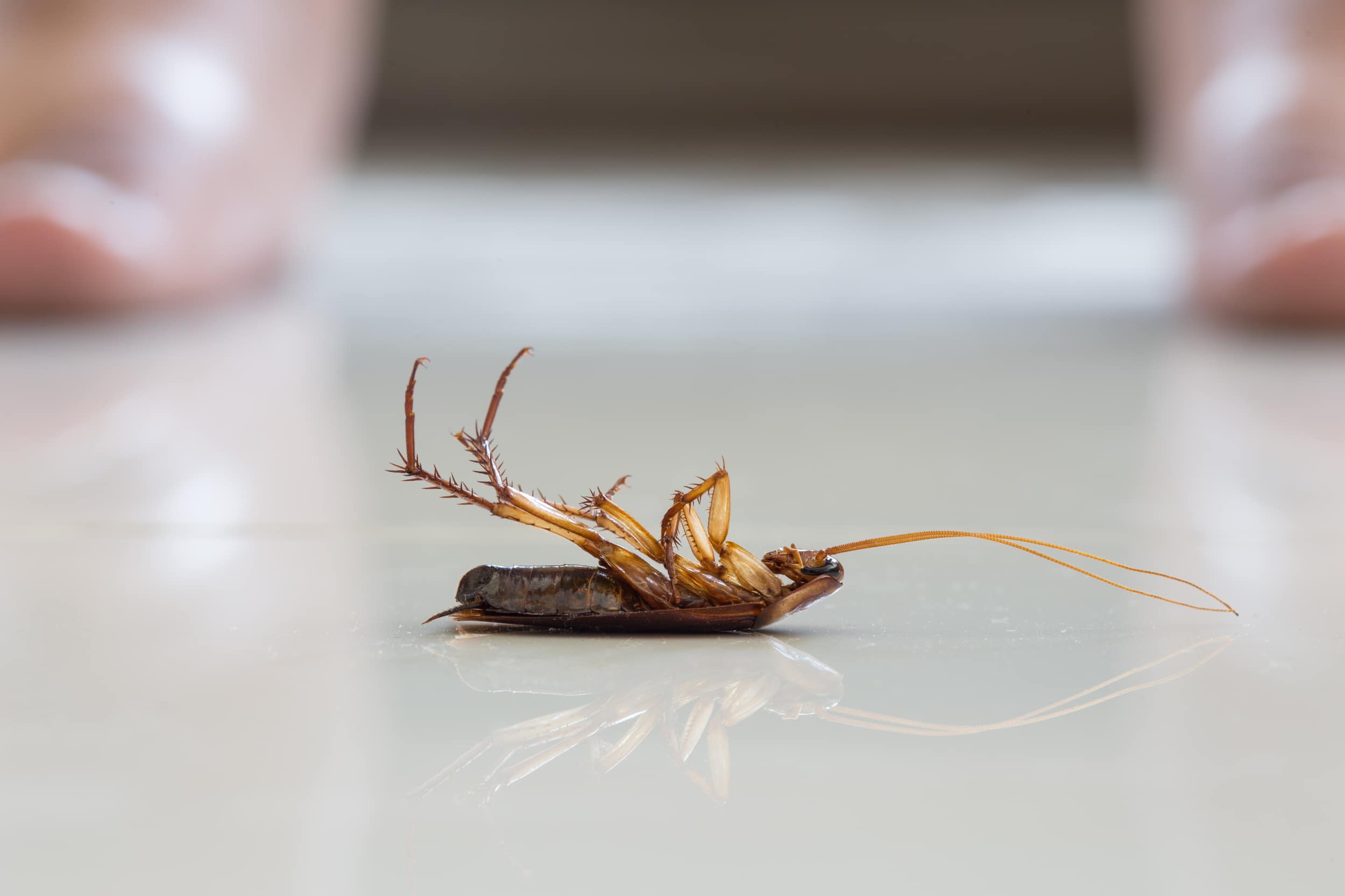
Cockroaches are among the most resilient and common pests in homes and businesses. While many people are quick to dismiss them as a mere nuisance, these creatures can pose more serious risks than you might think. Whether you’ve spotted one in your kitchen or are simply concerned about their presence, it’s important to understand the potential dangers they can bring. In this blog, we’ll explore the facts and considerations surrounding the threat of cockroaches, helping you determine whether they are actually something to worry about.
Are Cockroaches Harmful to Humans?
Cockroaches are annoying household pests that lurk in warm, humid regions of the United States, especially in states like Georgia, Texas, California, and more. There are more than 30 species of roaches, from the flying Wood Cockroaches to the popular German Cockroach. Cockroaches are known to eat anything and everything, whether greasy foods left over on the counter, decaying wood, or sewage found outside.
Known for their unsanitary nature, many people also wonder if cockroaches are dangerous. Roaches aren’t intentionally harmful to humans and won’t likely attack or bite you, but these pests can carry nasty diseases or pose a risk to those with allergies. Since cockroaches often poop and leave their saliva or vomit wherever they travel, they can quickly contaminate food, high-traffic surfaces, and the air in homes or commercial buildings.
Are Roaches Poisonous?
No, cockroaches are not poisonous and don’t produce poison. They don’t sting and rarely bite people.
5 Diseases Roaches Can Carry
Research shows that roaches are responsible for the spread of 33 types of bacteria, 7 types of pathogens, and 6 varieties of parasitic worms. Although cockroaches aren’t necessarily the primary cause of a disease spreading, they can play a significant role. Below are 5 of the prevalent diseases cockroaches are known to carry:
- Salmonellosis: Salmonella food poisoning causes diarrhea, fever, and abdominal cramps. Symptoms can be mild to severe, especially for those with weakened immune systems.
- Staphylococcus Infections: This gastrointestinal illness develops shortly after eating food and usually lasts no longer than a day. The toxins are heat-resistant, so they can’t be destroyed by cooking.
- Escherichia coli (E. coli) bacteria typically live in the intestines of people and animals, and a select number of them can cause illness, such as diarrhea.
- Typhoid Fever: This is a severe illness caused by Salmonella Typhi. It can be potentially life-threatening when contaminated food is ingested, allowing the bacteria to multiply and enter the bloodstream.
- Gastroenteritis: This is inflammation of the stomach and small and large intestines, which generally leads to vomiting or diarrhea.
Apart from these diseases, cockroaches are known carriers of microorganisms that can cause diarrhea, dysentery, leprosy, plague, or viral diseases like poliomyelitis.
Cockroaches & Allergies
When cockroaches scurry around your home, they shed skin and leave their feces and saliva behind. As these substances travel into the air, they affect people in your home. When inhaled, they can trigger asthma or allergies that persist far longer than typical seasonal allergies.
If you’ve seen cockroaches in your space and are experiencing the following symptoms, you may have a roach allergy:
- Excessive coughing
- Wheezing
- Itchy, red, or watery eyes
- Postnasal drip
- Skin rashes
- Ear infection
- Sinus infection
- Nasal congestion
These symptoms can last even after cockroaches are gone, resulting in discomfort year-round. It’s best to consult a healthcare professional and get tested to determine if you’re allergic to roaches.
How to Get Rid of Roaches
Even though cockroaches usually aren’t dangerous, they can carry diseases or worsen allergies in your home, and getting rid of them as soon as possible is recommended to prevent further health hazards. Taking steps to eliminate cockroaches can help reduce the risk of disease transmission and alleviate allergy symptoms, ensuring a cleaner and healthier living environment. There are several DIY methods for deterring cockroaches, including:
- Diffuse essential oils like peppermint, tea tree, or rosemary around the environment.
- Fill a container with equal parts baking soda and sugar and another bowl with water, letting the cockroaches consume both.
- Sprinkle boric acid in areas with roaches, including under sinks or along baseboards. Be careful; boric acid can be toxic if congested in larger quantities.
The best way to prevent roaches is to maintain a clean environment. Remove trash often, sanitize counters in your kitchen and bathroom, clean bathroom toilets regularly, and put food away immediately to ensure roaches stay out of your home or business. If you have a cockroach infestation or can’t seem to get rid of the stubborn pests, hire a professional cockroach control team for effective results.
Keep Cockroaches at Bay in Your Southern California Property
If you’d like to prevent cockroaches from spreading diseases and posing a threat to those with allergies or asthma on your property, Preventive Pest Control is here to help. With offices in Orange County and the Inland Empire, we’re ready to serve Southern California residents and ensure roach-free living conditions. Our exterminators care about your health and the wellness of those you interact with, whether they live in your home or work at your business. That’s why we prioritize providing cost-effective, lasting cockroach control subscription plans that safeguard your property year-round.
Don’t wait to enjoy the peace of mind that comes with not having to worry about cockroaches scurrying around your property. Contact Preventive Pest Control today to benefit from our 5-star pest control services in Southern California.
